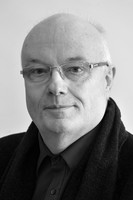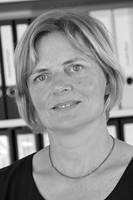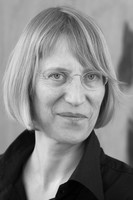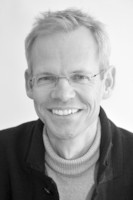Prof. Dr. Volkhard Knigge / Speaker
Volkhard Knigge studied history, German literature, and educational science at Carl von Ossietzky University in Oldenburg. In 1986 he earned his Ph.D. with a psychoanalytical, historical-didactic dissertation on the problem of trivial historical consciousness. Since 1994 he has been the director of the Buchenwald and Mittelbau-Dora Memorials Foundation, where he played a key role in redesigning the memorials after 1989-90, as well as being involved in numerous permanent and traveling exhibits. In 2002 he was named honorary professor of History and Publicity at the Friedrich Schiller University of Jena. Since 2007 he has headed its History in the Media and Public Sphere program.
Prof. Dr. Norbert Frei / Deputy Speaker
Norbert Frei studied modern history, political science, and communications at Ludwig Maximilian University in Munich. From 1979 to 1997 he was a research assistant at the Institute of Contemporary History in Munich, before becoming a tenured professor of Modern and Contemporary History at Ruhr University in Bochum. Since 2005 he has held this position at the Friedrich Schiller University of Jena, and since 2006 has served as the director of the Jena Center 20th Century History. He has been a visiting professor and a fellow at the Institute for Advanced Study in Berlin, as well as at Harvard and Princeton, in New York und in Jerusalem.
Current research projects (selected)
The Germans and Nazism (publication series at C.H. Beck publishing house)
Jena Psychiatry in the Twentieth Century (funded by the Ernst Abbe Foundation)
“Human Rights in the Twentieth Century” working group (funded by the Fritz Thyssen Foundation)
Research focus
German history in the twentieth century; long term research focus on the history of human rights, media and corporate history, the history of political ideas, the history of the Jews in Germany, as well as the relationship between contemporary history and collective memory
Select publications
Monographs
Der Führerstaat. Nationalsozialistische Herrschaft 1933 bis 1945 [The Führer State: Nazi Rule, 1933 to 1945], Munich 1987 (new edition 2013).
Vergangenheitspolitik. Die Anfänge der Bundesrepublik und die NS-Vergangenheit [The Politics of Dealing with the Past: The Early Years of the Federal Republic and the Nazi Past], Munich 1996 (new edition 2012).
1968. Jugendrevolte und globaler Protest [1968: Youth Revolts and Global Protest], Munich 2008.
1945 und wir. Das Dritte Reich im Bewusstsein der Deutschen [1945 and Us: The Third Reich in the Consciousness of Germans], Munich 2005.
(with Eckart Conze, Peter Hayes, Moshe Zimmermann) Das Amt und die Vergangenheit. Deutsche Diplomaten im Dritten Reich und in der Bundesrepublik [The Foreign Office and Its History: German Diplomats in the Third Reich and the Federal Republic], Munich 2010.
As an editor
(with Annette Weinke) Toward a New Moral World Order? Menschenrechtspolitik und Völkerrecht seit 1945 [Toward a New Moral World Order? Human Rights Policies and International Law Since 1945], Göttingen 2013.
(with José Brunner and Constantin Goschler) Die Praxis der Wiedergutmachung. Geschichte, Erfahrung und Wirkung in Deutschland und Israel [The Practice of Wiedergutmachung: The History, Experience and Effects of Reparations in Germany and Israel], Göttingen 2009.
Recent essays
Das Epochenjahr, in: Lothar Schirmer (ed.): 1945. Ikonen eines Jahres, Munich 2015, pp. 7-20.
Fritz Bauer oder: Wann wird ein Held zum Helden?, in: Stefan Gerber/Werner Greiling/Tobias Kaiser/Klaus Ries (eds.): Zwischen Stadt, Staat und Nation. Bürgertum in Deutschland (Festschrift für Hans-Werner Hahn), Göttingen 2014, pp. 274-279.
Kollektivschuldthese und Vergangenheitspolitik. Thomas Mann im politischen Horizont der Nachkriegsdeutschen, in: Thomas Mann Jahrbuch 27 (2014), pp. 9-16.
German Zeitgeschichte and Generation, or How to Explain the Belated Career of the Nazi Volksgemeinschaft, in: Social Research 81 (2014), vol. 3, pp. 569-582.
Die Aufklärer und die Überlebenden, in: Zeitgenossenschaft. Zum Auschwitz-Prozess 1964. Martin Warnke. Vorgestellt von Pablo Schneider und Barbara Welzel, Zurich 2014, pp. 55-64.
Prof. Dr. Joachim von Puttkamer / Deputy Speaker
From 1986 to 1994 Joachim von Puttkamer studied East European history, economics, as well as modern and contemporary history at Freiburg University and the University of London. He earned his Ph.D. in 1994 and his postdoctoral degree (Habilitation) in 2000 at Freiburg University, where he worked as a research assistant in the area of Modern and East European History. Since 2002 he has been a full professor of East European History at the Friedrich Schiller University of Jena. Since 2010 Joachim von Puttkamer has directed the Imre Kertész Kolleg “Eastern Europe in the Twentieth Century” together with Prof. Wlodzimierz Borodziej (Warsaw).
Current research project
The First Year of Transformation: Poland and East-Central Europe, 1989–90
Research focus
State-building and statehood in Eastern Europe
Nationalism in East-Central and Southeastern Europe
The history of schools and education
East European cultures of memory
Comparative history
Select publications
Monographs
Ostmitteleuropa im 19. und 20. Jahrhundert [East-Central Europe in the Nineteenth and Twentieth Centuries], Munich 2010.
Schulalltag und nationale Integration in Ungarn. Slowaken, Rumänen und Siebenbürger Sachsen in der Auseinandersetzung mit der ungarischen Staatsidee, 1867-1914 [School Life and National Integration in Hungary: Slovaks, Romanians, and Transylvanian Saxons in Conflict with the Idea of Hungarian Statehood, 1867-1914], Munich 2003.
Fabrikgesetzgebung in Rußland vor 1905. Regierung und Unternehmerschaft beim Ausgleich ihrer Interessen in einer vorkonstitutionellen Ordnung [Factory Legislation in Russia Before 1905: Government and Business Balancing Their Interests in a Pre-Constitutional System], Cologne/Weimar/Vienna 1996.
As an editor
(with Jochen Böhler and Wlodzimierz Borodziej) Legacies of Violence. Eastern Europe’s First World War, Munich 2014.
(with Jana Osterkamp) Sozialistische Staatlichkeit [Socialist Statehood], Munich 2012.
(with Wlodzimierz Borodziej and Jerzy Kochanowski) „Schleichwege“. Inoffizielle Begegnungen sozialistischer Staatsbürger zwischen 1956 und 1989 [Secret Paths: Unofficial Encounters Between Socialist Citizens from 1956 to 1989], Cologne/Weimar/Vienna 2010.
(with Gabriella Schubert) Kulturelle Orientierungen und gesellschaftliche Ordnungsstrukturen in Südosteuropa [Cultural Orientations and Structures of Social Organization in Southeastern Europe], Wiesbaden 2010.
Essays
Beunruhigend banal. Die Erinnerung an den Kommunismus in der ungarischen Verfassung und ihren Bildern, in: Volkhard Knigge (ed.): Kommunismusforschung und Erinnerungskulturen in Ostmittel- und Westeuropa, Cologne/Weimar/Vienna 2013, pp. 61-87.
Der Mythos vom „dicken Strich“. Der 24. August 1989 und der Anfang vom Ende der Staatssicherheit, in: Historie. Jahrbuch des Zentrums für Historische Forschung Berlin der Polnischen Akademie der Wissenschaften 7 (2013/2014), pp. 34-66.
Die ungarische Nation und ihre Geschichte. Blicke auf ein gespaltenes Land, in: Osteuropa 61 (2011), vol. 12, pp. 9-28.
Prof. Dr. Anke John
Anke John studied history, German literature, and education from 1986 to 1991 at Rostock University and earned her Ph.D. there in 1996 with a dissertation on the regional history of Mecklenburg. She completed her postdoctoral degree (Habilitation) in 2009 on the Weimar Federation. From 2006 to 2013 she was a research assistant for historical didactics at Rostock University, and from 2009 to 2011 she was acting professor for historical didactics at Duisburg-Essen University. Since 2013 Anke John has been professor for historical didactics at the Friedrich Schiller University of Jena. She also serves on the advisory council of the Federal President’s History Competition.
Current research project
Local and Regional Historical Education (Manual on Methods of Historical Education)
Research focus
Local and regional history in the classroom
Empirical research on the link between historical consciousness and place
Discovery learning (forschend-entdeckendes Lernen)
New media and the transformation of historical learning
Contemporary history in the classroom – Didactic perspectives and test formats
Select publications
Monographs
Der Weimarer Bundesstaat. Perspektiven einer föderalen Ordnung [The Weimar Federation: Perspectives of a Federal System], Cologne/Weimar/Vienna 2012.
Die Entwicklung der beiden mecklenburgischen Staaten im Spannungsfeld von Landesgrundgesetzlichem Erbvergleich und Bundes- bzw. Reichsverfassung [The Development of Two Mecklenburg States Between the Inheritance Settlement and a Federal / Reich Constitution], Rostock 1997.
As an editor
Zeitschrift für Geschichtsdidaktik und Beihefte der Zeitschrift für Geschichtsdidaktik [Journal of Historical Didactics, and supplement], 2012 ff.
Essays
Ich brauche ein Titelbild für meine Mappe.“ Bildgestützte Internetrecherche und historisches Bildverstehen, in: Christoph Pallaske (ed.): Medien machen Geschichte. Neue Anforderungen an den geschichtsdidaktischen Medienbegriff im digitalen Wandel, Berlin 2015, pp. 115-131.
Nachhaltiger Geschichtsunterricht, in: Michael Sauer/Charlotte Bühl-Gramer/Anke John/Marko Demantowsky/Alfons Kenkmann (eds.): Geschichtslernen in biographischer Perspektive. Nachhaltigkeit – Entwicklung – Generationendifferenz, Göttingen 2014, pp. 105-114.
Geschichtsdidaktik 2.0 – Vom Nutzen und Nachteil internetbasierten Studierens im Lehramt Geschichte, in: Susanne Popp/Michael Sauer/Bettina Alavi/Marko Demantowksy/Alfons Kenkmann (eds.): Zur Professionalisierung von Geschichtslehrerinnen und Geschichtslehrern, Göttingen 2013, pp. 279-298.
„Kuckuck, Kuckuck ruft aus dem Wald“. Frühlingslieder im Visier der politischen Zensur, in: Geschichte lernen 149 (2012), pp. 14-19.
Disziplin am Scheideweg – Die Konstituierung einer universitären Geschichtsdidaktik in den 1970er Jahren, in: Michele Barricelli/Axel Becker/Christian Heuer (eds.): Jede Gegenwart hat ihre Gründe, Schwalbach/Ts. 2011, pp. 192-213.
„HisTourismus“ oder „erweitertes Klassenzimmer“? Zum Lernpotenzial von Museen in Mecklenburg-Vorpommern für den Geschichtsunterricht, in: Der Festungskurier. Beiträge zur Mecklenburgischen Landes- und Regionalgeschichte, vol. 10. Rostock 2010, pp. 61-69. Abschied vom „Friedensstaat“. Skandal und Protestbewegung, in: 1989. Geschichte lernen 128 (2009), pp. 19-25.
Prof. Dr. Verena Krieger
Verena Krieger studied art history, philosophy, history, and psychology at the universities of Bochum, Cologne and Bielefeld, completing her Ph.D. in art history in 1996 under Beat Wyss. From 1998 to 2008 she was a research assistant at the Institute for Art History at Stuttgart University. She then worked as a professor of art history at the University of Applied Arts in Vienna until 2011. Since 2011 she has served as head of the Art History program at the Friedrich Schiller University of Jena.
Research Focus
Art and society, avant-garde and politics
Aesthetic ambiguity
Concepts of the artist and creativity
Artistic constructions of femininity and masculinity
Methodological questions in art history
Select publications
Monographs
Was ist ein Künstler? Genie – Heilsbringer – Antikünstler. Eine Ideen- und Kunstgeschichte des Schöpferischen [What Is an Artist? Genius – Savior – Anti-artist: An Intellectual and Art History of the Creative], Cologne 2007.
Kunst als Neuschöpfung der Wirklichkeit. Die Anti-Ästhetik der russischen Moderne [Art as a Recreation of Reality: The Anti-aesthetic of Russian Modernism], Cologne/Weimar/Vienna 2006.
As an editor
(with Elisabeth Fritz) When Exhibitions Become Politics. Politische Dimensionen der Kunstausstellung [When Exhibitions Become Politics: Political Dimensions of Art Exhibiting], forthcoming 2016.
(with Sabine Fastert and Alexis Joachimides) Die Wiederkehr des Künstlers. Themen und Positionen der aktuellen Künstler/innenforschung [The Return of the Artist: Themes and Standpoints of Present-day Artists], Cologne/Weimar/Vienna 2011.
(with Rachel Mader) Ambiguität in der Kunst. Typen und Funktionen eines ästhetischen Paradigmas [Ambiguity in Art: Types and Functions of an Aesthetic Paradigm], Cologne/Weimar/Vienna 2010.
Essays
El Lissitzkys "Roter Keil" – 4 Kontexte und 3 Bildlektüren. Die Semantik der Form in ikonologischer Perspektive, in: Kristin Marek/Martin Schulz (eds.): Kanon Kunstgeschichte. Einführung in Werke und Methoden, vol. III: Moderne, Munich 2015, pp. 177-216.
Strategische Uneindeutigkeit. Ambiguierungstendenzen "engagierter" Kunst im 20. und 21. Jahrhundert, in: Rachel Mader (ed.): Radikal ambivalent, Zurich/Berlin 2014, pp. 29-56.
Transzendenz der Zeit. Bildkonzepte absoluter Gegenwärtigkeit in der Kunst der klassischen Moderne, in: Michael Gamper/Helmut Hühn (eds.): Zeit der Darstellung. Ästhetische Eigenzeiten in Kunst, Literatur und Wissenschaft, Hannover 2014, pp. 109-136.
Adam als Liebespartner. Zur Konstruktion eines neuen Männlichkeitsideals in Sündenfalldarstellungen des frühen 16. Jahrhunderts, in: Doris Guth/Elisabeth Priedl (eds.): Bilder der Liebe. Liebe, Begehren und Geschlechterverhältnisse in der Kunst der Frühen Neuzeit, Bielefeld 2012, pp. 29-66.
Prinzip Palimpsest. Künstlerische Strategien zur Transformation problematisch gewordener Denkmäler, in: Arbeitskreis zur Umgestaltung des Lueger-Denkmals in ein Mahnmal gegen Antisemitismus und Rassismus (ed.): Open Call: Handbuch zur Umgestaltung des Lueger-Denkmals, Vienna 2011, pp. 68-80.
Kippenberger. Der Film – eine (post-) moderne Künstlerlegende?, in: Christopher Balme/Fabienne Liptay/Miriam Drews (eds.): Die Passion des Künstlers. Kreativität und Krise im Film, Munich 2010, pp. 88-116.
Arachne als Künstlerin. Velázquez‘ Las hilanderas als Gegenentwurf zum neuplatonischen Künstlerkonzept, in: Zeitschrift für Kunstgeschichte 65 (2002), pp. 545–561.
Prof. Dr. Michael May
From 1993 to 2000 Michael May studied at Martin Luther University in Halle-Wittenberg as well as at the University of Aberdeen (Scotland) to become a secondary-school teacher of social studies and history. From 2002 to 2012 he was a secondary-school teacher (Gymnasium) in Saxony-Anhalt and Lower Saxony, as well as serving intermittently as department head at the Braunschweig Teacher Training College and as a member of the board of examiners for politics and economics in Lower Saxony. In 2006 Michael May completed his Ph.D. studies at the Center for School and Educational Research (ZSB) in Halle with a dissertation on “Democratic Capacity and Civic Literacy: Normative and Competence Theoretical Foundations of Political Education.” Following teaching assignments at the universities of Halle, Göttingen, and Jena, in 2012 he was appointed full professor of Political Didactics at the Friedrich Schiller University of Jena.
Current research project
Situated learning (Lernen mit fachspezifischen Anforderungssituationen, LEMFA)
Research focus
Situated learning and competence orientation in political education
Right-wing extremism and political education
Concepts and theories of political education
Qualitative research on specialized teaching
Select publications
Monographs
Demokratie-Lernen oder Politik-Lernen? [Learning Democracy or Learning Politics], Schwalbach am Taunus. 2008.
Demokratiefähigkeit und Bürgerkompetenzen. Kompetenztheoretische und normative Grundlagen der politischen Bildung [Democratic Capacity and Civic Literacy: Normative and Competence Theoretical Foundations of Political Education], Wiesbaden 2007.
Zielbegriff Freiheit. Negative, positive und deliberative Freiheit in der Politikdidaktik [Target Concept Liberty: Negative, Positive, and Deliberative Liberty], Schwalbach am Taunus. 2005.
As an editor
(with Jessica Schattschneider) Klassiker der Politikdidaktik neu gelesen. Originale und Kommentare [Classics of Political Didactics Reread: Originals and Commentary], Schwalbach am Taunus 2011.
Essays
Kompetenzorientierte Unterrichtsplanung mit Anforderungssituationen und nach politikdidaktischen Prinzipien – eine Skizze, in: Siegfried Frech/Dagmar Frech (eds.): Politikunterricht professionell planen, Schwalbach am Taunus 2015.
Politische Bildung als Beruf. Oder: Welche professionellen Herausforderungen stellen politische Bildungsprozesse an die Lehrenden?, in: Gesellschaft – Wirtschaft – Politik 63 (2014), vol. 4, pp. 585-596.
(with Jessica Schattschneider) “Klassische” didaktische Theorien zur politischen Bildung, in: Wolfgang Sander (ed.): Handbuch politische Bildung. 4th, fully revised edition. Schwalbach am Taunus 2014, pp. 31-41.
„The Fog of War“ – Die Lehren des kriegerischen 20. Jahrhunderts aus der Sicht eines seiner Protagonisten, in: Veit Staßner (ed.): Filme im Politikunterricht. Wie man Filme professionelle aufbereitet, das filmanalytische Potential entdeckt und Lernprozesse anregt – mit zehn Beispielen, Schwalbach am Taunus 2013, pp. 258-283.
Kompetenzorientiert unterrichten – Anforderungssituationen als didaktisches Zentrum politisch-sozialwissenschaftlichen Unterrichts, in: Gesellschaft – Wirtschaft – Politik 60 (2011), vol. 1, pp. 123-134.
Prof. Dr. Dirk von Petersdorff
Dirk von Petersdorff studied the history of German literature and history at Kiel University, where he earned his Ph.D. in 1995. In 2003 he completed his postdoctoral degree (Habilitation) at Saarland University on the topic “Centrifugal Forces of Modernity: On Constituting the Ego in Twentieth-Century Poetry.” Since 2008 he has been a tenured professor for modern German literature at the Friedrich Schiller University of Jena. He was a fellow at the Institute for Advanced Study in Berlin. In the 2013–14 Winter Semester he held Tübingen University’s poetics lectureship together with Hans Magnus Enzensberger.
Current research project
Monograph on Goethe’s poetry (cf. the related essay below)
Research focus
Literature and social modernization (eighteenth through twentieth century)
Literature and literary theory of Romanticism
Thyssen project “The Meeting of the Romantics in Jena (November 11 - 14/15, 1799): Documentation and Analysis” ? Project description
Select publications
Monographs
Literaturgeschichte der Bundesrepublik Deutschland. Von 1945 bis zur Gegenwart [Literary History of the Federal Republic of Germany: From 1945 to the Present], Munich 2011.
Geschichte der deutschen Lyrik [History of German Poetry], Munich 2008.
Fliehkräfte der Moderne. Zur Ich-Konstitution in der Lyrik des frühen 20. Jahrhunderts [Centrifugal Forces of Modernity: On Constituting the Ego in Twentieth-Century Poetry], Tübingen 2005.
Mysterienrede. Zum Selbstverständnis romantischer Intellektueller [The Mysteries Speech: On the Self-Understanding of Romantic Intellectuals], Tübingen 1996.
As an editor
Hans Magnus Enzensberger und die Ideengeschichte der Bundesrepublik. Mit einem Essay von Lars Gustafsson [Hans Magnus Enzensberger and the History of Ideas of the Federal Republic: With an Essay by Lars Gustafsson], Heidelberg 2010.
(with Bernd Auerochs) Einheit der Romantik? Zur Transformation frühromantischer Konzepte im 19. Jahrhundert [Unity among the Romantics? On the Transformation of Early Romantic Concepts in the Nineteenth Century], Paderborn 2009.
Essays
Der Apfelmann aus Delmenhorst. Gegenwartsdiagnostik in der deutschen Popmusik, in: Merkur. Deutsche Zeitschrift für europäisches Denken 62 (February 2008), pp. 123-131.
Transgressiv und transitorisch. Romantische Prinzipien der Strukturierung von Bildlichkeit (Wackenroder, Novalis, Kugler), in: Benjamin Specht (ed.): Epoche und Metapher. Systematik und Geschichte Kultureller Bildlichkeit, Berlin/Boston 2014, pp. 188-201.
Was Götter und Geister noch zu sagen haben. Überlegungen zur Funktion religiöser Semantik in Goethes Lyrik, in: Jahrbuch des Freien Deutschen Hochstifts 2014, pp. 24-47.





